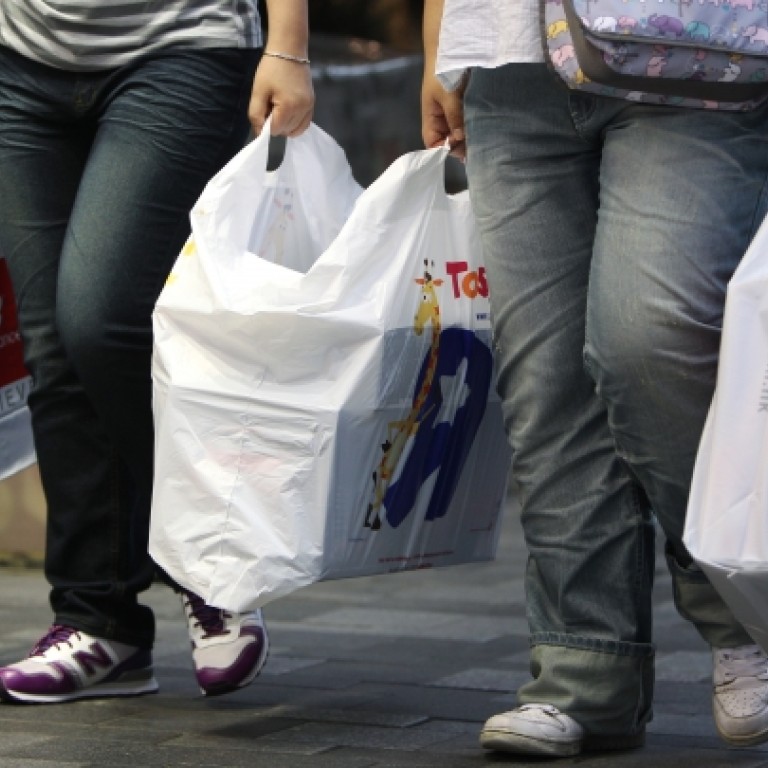
Genuinely 'green' bags are available
There has been a lot of debate in Hong Kong about plastic bags versus the reusable variety.
I try to always take a reusable bag when I go shopping. People at bakeries and fast food outlets give me a look of curious interest when I do not take free plastic bags. At these places, they are still legal and supplied in large quantities.
In addition, I make sure not to take any plastic cutlery or wooden chopsticks when I get a takeout meal.
I am all for a plastic bag levy, which has been in place in my home country Germany for decades. Nevertheless, it seems the government in Hong Kong is not looking closely at the developments in this area and many people are not aware of the different plastic bags available. Virgin plastic bags and recycled plastic bags will degrade only after hundreds of years.
Oxo biodegradable bags are made with chemical additives. These inexplicably are promoted in Hong Kong as biodegradable.
When they degrade in landfills, they emit the chemical additives back into the ground, poisoning our ground and water supplies.
Starch-based biodegradable bags are 100 per cent compostable, but prohibitively expensive, depend on the food chain and have a limited shelf life.
Since 2012, there have also been enzyme-based compostable bags available.
These cost minimally more than standard bags, are fully compostable in landfills, have a long shelf life and have reached conformity with strict EU standards for "compostability".
These bags compost 90 per cent within 180 days, without releasing any chemicals into the ground.
In line with raising a plastic bag levy for all businesses in Hong Kong, the government should make it compulsory to use these 100 per cent compostable bags.
At the same time, officials should limit or even forbid the use of the now-popular non-woven bags as these are even more damaging to the environment. Do not ask me how many of them turn up in my house via family members, I have no idea where or how to dispose of them. They take up more space in landfills and even longer to degrade than conventional plastic bags (that is thousands instead of hundreds of years).
Raising awareness via a levy is certainly a good policy to adopt, but finding a conclusive solution that helps, protects and enhances the environment should be the ultimate goal of our government.
